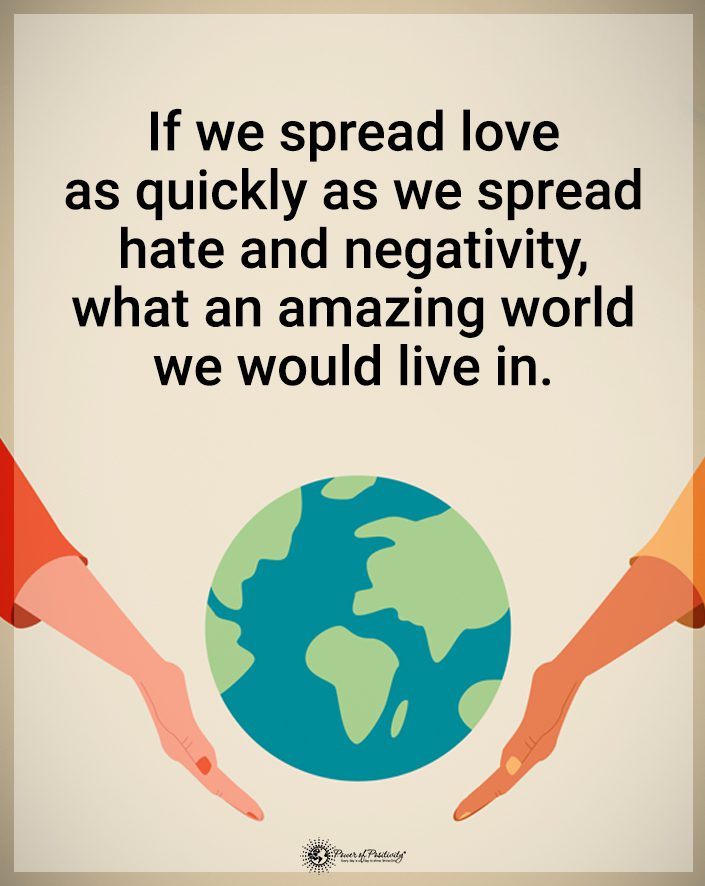Hatred impacts your mental health and interferes with your overall well-being. Many people don’t realize the harmful effects, although they’re highly detrimental. Understanding the destructive nature of hate is a step towards achieving healthier mental states.
Hate can impact a person’s mental health, causing low self-esteem and self-confidence. It can also lead to shame, fear, guilt, hopelessness, and other detrimental impacts on your mental health. Feeling this way can complicate life because you might experience depression, anxiety, and other disorders.
When a family member, friend, co-worker, or anyone else says something hateful to you, it makes you feel bad. The same goes for feeling hateful things about yourself or those around you. It harms your emotional health and overall well-being.
The effects of hatred on mental health are too harmful to ignore. Understanding the impact can help you address the issue and release the negativity.
Hatred’s Effects on the Brain
Hate negatively impacts your brain health and disrupts emotional regulation. While everyone experiences it sometimes, long-term hateful feelings can lead to self-destruction, affecting your organs and natural processes. It also leads to a continuous spiral of negative emotions that interferes with your well-being.
Persistent hatred can create unhealthy neural pathways and trigger the hate circuit. Neuroscience research shows this circuit involves your insular cortex, putamen, and left superior frontal gyrus.
It also stimulates the premotor cortex, the region responsible for planning and executing. You may behave aggressively when it activates as a defense mechanism or attack tactic. It also triggers brain regions associated with distress while deactivating those responsible for reasoning and judgment.

Hatred can trigger the fight-or-flight response because the premotor cortex stimulates your autonomic nervous system, creating unhealthy neural pathways. It increases cortisol and adrenalin, hormones that deplete your adrenals and cause issues including:
- weight gain
- insomnia
- anxiety
- depression
- chronic illness
Many believe that hating someone affects others, but that’s not always true. Instead, it affects you, doesn’t usually impact the person you dislike, and it doesn’t do anything beneficial. It attaches you to the person you dislike, leading to continual repulsion and causing more pain.
Hate and Stress
Hate can lead to rising stress levels because it increases stress hormones, including cortisol and adrenaline. It fuels a cycle of chronic stress, and the long-term hormone increases cause inflammation.
The inflammation impacts your physical health, potentially causing complications. It can interfere with your nervous, immune, and endocrine systems. High cortisol levels that last long-term can lead to increased:
- blood cholesterol levels
- triglycerides
- blood pressure
- blood sugar
- anxiety and depression
- headache frequency
High-stress levels from hate also activate your fight or flight response long-term. It creates a stress response involving increased body temperature, sweating, and higher respiration rates. Chronic stress responses can lead to long-term health effects that increase your risk of physical health issues, including heart disease, stroke, cognitive impairment, and more.
How to let go of hate to decrease stress:
When hate causes stress, you can learn to let go of it by focusing on deep breathing. Anytime you start to feel hateful, take a moment to yourself and take a deep breath. Then, let the breath out slowly and repeat it for five repetitions or until you feel better.
Deep breathing can help you feel calm, releasing the anger and tension that accompany hatred. As you release your breath, visualize the hate leaving your body. On the inhale, think of calmer, positive thoughts.
This process can help distract you from hateful, negative thoughts. It encourages you to move on and build presence awareness that doesn’t involve hatred.
Hatred and Emotional Exhaustion
Hatred involves ongoing negativity and hostility that depletes your emotional energy. It can cause emotional fatigue or mental exhaustion, making you feel drained from the stress of your life. When you allow hate to fester within you, you’ll use your time and energy to fixate on the negativity.
Harboring this negativity takes an emotional toll on you, creating stress and leading to mental burnout. Experiencing emotional exhaustion can cause you to feel a lack of control in stressful situations. It can lead to a loss of motivation, irritability, hopelessness, trouble sleeping, and more.
You’ll experience decreased productivity because it can make you think negatively about all aspects of your life. It makes you not want to accomplish your tasks, leading to negative performance. The negativity will impact those depending on you and create a cycle of negativity, creating more issues.
You can identify burnout and mental exhaustion when you:
- lack the energy or motivation to care about your life
- have a bad day every day
- constantly doubt yourself or feel like a failure
- feel overwhelmed when working on daily tasks
- experience changing sleep habits
- constantly feel exhausted or drained
- think you can’t make a difference
- feel helpless
- eat more or less than usual
- get sick more often
- withdraw or isolate yourself
- experience frequent headaches
- notice unexplainable muscle pain
- take longer to accomplish tasks
- use substances to cope
How to let go of hate to decrease emotional exhaustion:
Identify why you’re angry and brainstorm ways to overcome the situation. When you know the problem, you can work on fixing it rather than stewing in anger.
You can determine what triggers your negative feelings by keeping a journal and writing your thoughts as they come to mind. It’ll help you process your emotions and understand yourself better. Journaling also improves your overall well-being and promotes feelings of positivity.
You can also learn relaxation techniques that help you prevent or overcome burnout. Consider mindfulness, meditation, yoga, setting boundaries, doing things that make you happy, and doing other things for self-care. You can also try spending time with people you trust to help shift your attitude.
Hate and Interpersonal Relationships
Hateful feelings can lead to isolation and loneliness because they may lead to avoiding others. It leads to lowers relationship satisfaction that can damage the closest relationships.
Feeling hateful can cause relationship conflict and make it hard for you to trust others. It can interfere with healthy social bonds and make it hard to show empathy and understanding.
Empathy enlightens you to why people make mistakes, allowing you to understand and forgive. Without it, you’ll likely struggle to relate to others beneficially. Being understanding is essential to healthy social bonds, while hatred can interfere with your positive relationships.
When you can understand those around you, you can release negative feelings and improve your overall well-being. It lets the people you care about know you consider their thoughts and feelings. They’ll be more likely to see your point of view, strengthening your relationship.
Hate can make you feel agitated, and you might become upset with everyone around you. It will start to occur toward people who didn’t do anything to make you angry.
Hate can also lead to you attempting to predict other people’s actions. When you do this, you’ll spend time worrying or ruminating when you don’t know how things will turn out. It disrupts interpersonal relationships, increases anger, and can potentially contribute to:
- anxiety
- restlessness
- obsessive thinking
- paranoia
- negative relationship engagement
If anger becomes uncontrollable, it can also lead to physical fights, abuse, or assault. Rebuilding a bond with that person is unlikely if the situation reaches this point. If you ever feel like you may physically harm someone, it might be time to seek professional help.
How to let go of hate to improve interpersonal relationships:
Hatred toward people around you usually stems from being upset or angry with them. Learning about conflict resolution can help you consider new methods of overcoming issues. Conflict resolution involves using peaceful techniques to resolve problems in your relationships.
Resolving the argument can ease the discomfort and make it easier to be in their presence. Start with communication by talking to them about it, staying calm but being open and honest. You’ll want to bring the issue up early instead of letting it worsen, or it can create more problems.
Tell them how you feel and work on a resolution together. Listening to them is also essential to understanding their perspective and working through the issues. It’ll help you develop a stronger relationship instead of ruining it with hatred.
Another idea for letting go of hate toward someone is to list their positive qualities. Hatred can lead to only seeing their negative traits, and shifting the thought process can make a difference.
Final Thoughts on Understanding How Hatred Impacts the Brain and Decreases Mental Health
When you feel hatred, you’re the only one affected by the damaging impacts. The person you hate won’t go through the negative mental health impacts you do from these feelings.
Rather than letting another person control your thoughts and feelings, consider taking steps towards releasing the negativity. It’ll help you foster understanding, forgiveness, and positive emotions that boost your well-being. The sooner you release hateful feelings, the less damage it’ll do to your well-being.
Finding healthy ways to overcome hatred can offer peace of mind and better quality of life. You’ll be healthier emotionally and physically, allowing you to live a longer, more fulfilling life.





















